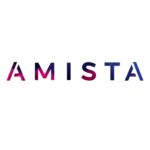Enhancing Wholesale sector growth in the Benelux: 7 key features of an ERP system for rapid ROI post-acquisition


Considering an acquisition in the wholesale sector? Choose the right ERP for swift ROI!
In the dynamic and competitive wholesale sector, acquisitions are pivotal for strategic growth and market expansion, especially for midmarket and large wholesale companies in the Benelux region. However, the complexities involved in merging organizations go beyond financial aspects. The ERP system plays a crucial role as the backbone of an organization, acting as a catalyst that can either accelerate or hinder the success of an acquisition. Selecting an ERP system that aligns with the acquisition strategy is paramount for ensuring a seamless transition and achieving rapid Return on Investment (ROI).
7 key features of an ERP system for rapid ROI post-acquisition
When growth ambitions are inevitable, making scalability a vital aspect of an ERP system is key. Particularly during an acquisition, a scalable ERP system is essential. If the acquired company plans to expand into new markets, the ERP system should easily adapt by incorporating new currencies, languages, and legal requirements. This adaptability ensures that the software grows with the organization, providing a long-term solution that contributes to rapid ROI.
The ERP system should seamlessly integrate with other platforms, similar to S/4HANA from SAP. For example, if your existing CRM system is Salesforce, smooth integration ensures a seamless data flow between sales and operations. Beyond internal integration, a robust ERP system should facilitate data exchange with other companies, enhancing internal operations and external partnerships, making your wholesale business more resilient and adaptable in the Benelux market.
Acquisitions often face challenges with employee buy-in. A user-friendly look & feel can ease this transition. For instance, an ERP system with an intuitive, drag-and-drop dashboard or in application help features reduce training time and increase employee engagement. This user-friendliness accelerates the buy-in process, making employees more productive and less resistant to the changes brought about by the acquisition.
During a wholesale acquisition, keeping track of various metrics is crucial for achieving goals. Real-time analytics provide insights into material costs, employee performance, and more. For example, if there’s a sudden spike in material costs, real-time analytics can alert you, enabling immediate procurement decisions to control expenses. This feature empowers CEOs and decision-makers to monitor the merger’s progress and assess its value, fostering productivity and adaptability.
Cloud-based ERP systems offer numerous advantages, including quicker implementation, lower upfront costs, and easier maintenance. Adopting a ‘clean core’ strategy, such as SAP’s, allows for minimal disruption during updates. Customizations are handled in a separate Business Technology Platform (BTP), ensuring unique configurations remain unaffected when the core system is updated.
Compliance is a significant concern in wholesale, especially during an acquisition. Newer ERP systems are built to be compliant with regulations like GDPR, data protection laws, and EU ESG reporting. An ERP system already compliant with these regulations saves time and cost. Look for ERP systems easily localized to meet specific accounting regulations.
Investing in a new ERP system requires future proofing. Ensure the system can integrate with emerging technologies like Artificial Intelligence for predictive analytics. Consider the system’s capability to adapt to future security challenges. A future-proof ERP system accommodates new forms of data storage and processing technologies that may become standard in the years to come.
The Wholesale Evolution
A wholesale acquisition is a significant milestone with opportunities and challenges. By carefully evaluating the features of a new ERP system, wholesale organizations in the Benelux region can ensure a smooth transition. At Amista, we are experienced with SAP’s ERP systems for organizations of all sizes: SAP Business One and SAP S/4HANA Cloud Public Edition. We offer a “Best Practices Wholesale scan” where we sit down with key users and leadership in short interviews and execute a landscape assessment, based upon the three pillars:
- Improving automation and reducing manual labor
- Integrations and data accuracy
- Business process assessment including WMS
With an investment of 3-4 hours by different stakeholders in your company, we deliver a report which points you to the key features your organization can focus on upon selecting a new ERP system.
Why partner with Amista?
Every day, we work with best-in-class wholesaler to keep them as productive and efficient as possible, ahead of the pack. We know first-hand that many wholesalers and retailers face several business challenges. As their strategic IT expert, we facilitate the transformation of wholesalers towards intelligent enterprises.

